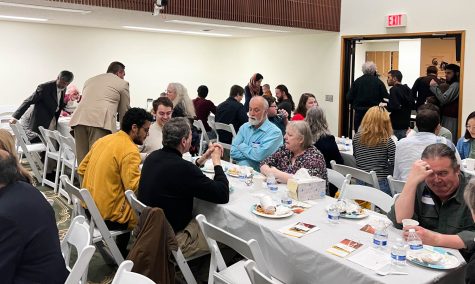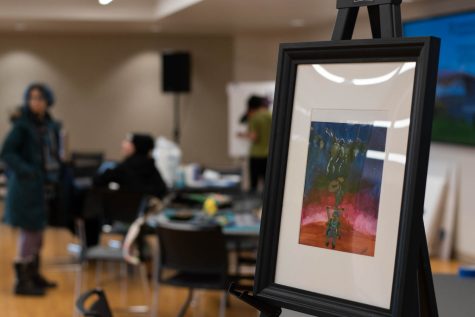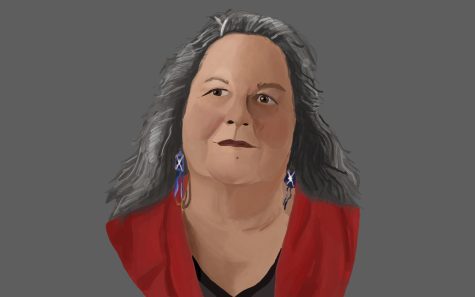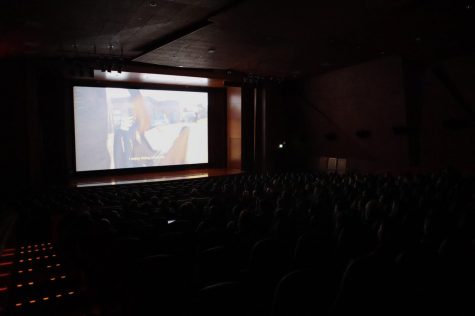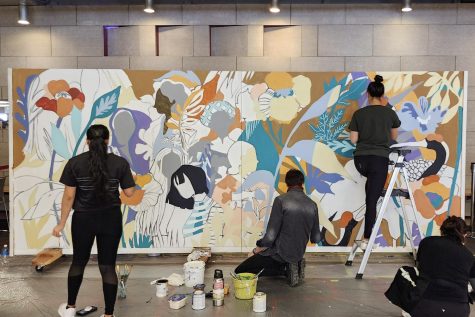Literature to Life presents a racial autobiography
November 14, 2016
{{tncms-asset app=”editorial” id=”de4688d2-aa1f-11e6-b900-ebf4a5bd02c0″}}
In a time of racism and slavery, the Jim Crow South is a difficult era to have a hunger for anything.
“Black Boy” dramatizes the autobiography of Richard Wright, an African-American who lived in the American South during the age of Jim Crow Laws. The performance at WSU, done in collaboration with Literature to Life and Young Audiences New York, also features pre- and post-show discussions.
“(Wright) had this hunger for knowledge (when) in that time, children were seen and not heard,” said Tarantino Smith, who plays Wright. “Wright had questions about society and religion, (and) he got labeled as the problem child.”
“Black Boy” follows Wright’s life from when he was four to about 19 years old, chronicling his struggle with society, his family and his community. Though Wright was curious about life, he had a lack of education and, therefore, didn’t attend school for a full year until he was 12, Smith said.
Smith is also an artistic director, working with Literature to Life for more than 10 years. The program takes classic works of literature and adapts them into a one-person production that can be taken to different venues.
A large part of the process is taking integrity of what the writer originally had scripted and taking verbatim from the novel, Smith said. The essence of “Black Boy” is the various forms of hunger: for knowledge or individuality.
“It’s intriguing to find out the pulse and the discussions that come out of the show,” said Mtume Gant, a teaching artist who will lead the discussions.
About five years ago, Literature to Life joined forces with Young Audiences New York, bringing these productions to a variety of venues, including schools and local theaters.
Along with portraying Richard Wright, Smith is the sole actor in the show and must play about 20 different characters.
“In every scene, these characters are speaking to each other,” Smith said. “You have to keep it in the moment (and) approach each character as if that’s the one character you’re playing.”
By knowing each character’s history and self-awareness, their manifestation into a physical form becomes easier, Smith said. This requires focus on the scene, especially when there are supposed to be multiple characters involved. Wright also breaks the fourth wall to directly interact with the audience during transitions of time in the story.
Gant said doing these shows with only one actor is beneficial in two ways. First, it’s easier to travel the show around the country when it’s a single actor as opposed to a larger cast. Second, it is beneficial to have the story told from a single perspective.
“When you change the narrative, you’re changing the way (the story’s) being told,” Gant said. “You’re actually still telling it the way the book is being told, you’re just theatricalizing it.”
Gant said this does not affect the difficulty in portraying the show. It only requires some imagination, similar to how a reader needs their imagination with books. One-person shows are just a different kind of storytelling.
Smith said he enjoys being able to break the fourth wall because it allows him to stay connected to the audience. As opposed to television or film, stage performances give actors a chance to feel the audience and keep the story personal.
“The audience will laugh at a certain moment … and it’ll take the momentum in a different way,” Smith said. “You keep it honest and in the moment, but now that moment is humorous because of the experience the crowd is having.”
“Black Boy” will play at 7:30 p.m. on Tuesday in Jones Theatre in Daggy Hall. Tickets are $16 for adults, $12 for seniors, $8 for non-WSU students and youths and free for WSU students with ID.









